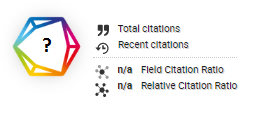Enhancing Problem-Solving Abilities of Teachers and Students through Integrated Computational Thinking Training in the Curriculum
DOI:
https://doi.org/10.46984/sebatik.v29i1.2606Keywords:
CT, problem-solving, 21st-century learning, Blended Learning, Curriculum IntegrationAbstract
Computational Thinking (CT) is a problem-solving approach that utilizes fundamental concepts of computer science. CT involves systematic and logical thinking to break down complex problems into smaller, manageable parts, recognize patterns, perform abstractions, and design algorithmic solutions. This skill is crucial in 21st-century learning as it helps teachers and students develop better problem-solving abilities. A relevant 21st-century curriculum should include skills such as computational thinking, problem-solving, collaboration, and communication. This training aimed to identify teachers' and students' abilities in solving problems using their existing knowledge and skills. The training was conducted using a blended learning method, featuring lectures, exercises, and quizzes. The activity took place at Erenos School in South Tangerang, involving 52 teachers and 184 students from elementary to high school levels. The training, organized by the Bebras Bureau of Universitas Pembangunan Jaya (UPJ), showed an improvement in analysis, synthesis, and evaluation skills among teachers and students who participated in the CT training integrated with the curriculum. The evaluation results revealed a significant increase in students' and teachers' understanding and application of CT concepts in real-life scenarios. Furthermore, teachers reported increased confidence in developing CT-based lesson plans and incorporating computational principles into everyday learning. These findings support the importance of CT integration into the national curriculum to enhance educational quality and equip learners with essential skills for the digital era.
References
Fenanda, H. E., Herlina, K., & Abdurrahman, A. (2024). Practicality and effectiveness of e-worksheet based on ExPRession learning model activities to train critical thinking skills. Asian Journal of Science Education, 6(1), 118–128.
Hadi, D., Suryani, E. A., Siswanto, D. H., & Pisriwati, S. A. (2024). Strengthening teacher competence through differentiated instruction training as an implementation of the Merdeka Curriculum. JOELI: Journal of Educational and Learning Innovation, 1(2), 3063–3966.
Hidayati, S., & Prasetyo, A. R. (2023). Enhancing science learning outcomes through computational thinking integration in junior high school. Jurnal Pendidikan Sains Indonesia, 11(1), 22–34.
Lim, C. P., & Chai, C. S. (2021). Integrating computational thinking in curriculum and instruction: Toward a learner-centered future. Journal of Computers in Education, 8(3), 345–362.
Lye, S. Y., & Koh, J. H. L. (2020). Review on teaching and learning of computational thinking through programming: What is next for K–12? Computers in Human Behavior, 105, 106870.
Ningrum, S. D., Puspitasari, I., & Hidayat, M. C. (n.d.). Implementasi pembelajaran berbasis Problem Based Learning untuk mendukung kemampuan memecahkan masalah peserta didik.
Putri, N. D., & Sutopo, H. (2021). Implementasi model Problem-Based Learning berbasis Computational Thinking untuk meningkatkan kemampuan berpikir kreatif. Jurnal Teknologi Pendidikan, 23(2), 145–158.
Rahayu Alam, S., Siswanto, D. H., & Aprilia, D. (2025). Implementasi pembelajaran STEM terintegrasi Computational Thinking untuk meningkatkan kemampuan pemecahan masalah murid. Papanda Journal of Mathematics and Sciences Research, 4(1).
Rahman, M. M., Nasir, M., & Syamsul, B. (2020). Improving teacher instructional practices through computational thinking training. International Journal of Instruction, 13(2), 425–440.
Utami, S. F., Negara, A. I., Anggraini, W., Sari, R. N., & Astuti, M. (2025). Penerapan model Problem Based Learning dalam pembelajaran PAI untuk meningkatkan kemampuan berpikir kritis siswa. Jurnal Pengabdian Masyarakat dan Riset Pendidikan, 3(4), 2364–2368.
Weng, C., Lin, Y., & Huang, Y. (2022). The impact of computational thinking-based STEM learning on problem-solving and academic achievement: Evidence from a quasi-experimental study. Journal of Educational Technology & Society, 25(3), 88–102.
Yuliana, S., Raharjo, T., & Dewi, A. P. (2024). Strengthening digital pedagogy through CT training for rural teachers in Indonesia. Indonesian Journal of Educational Research and Technology, 4(1), 51–60. https://doi.org/10.17509/ijert.v4i1.41289
Downloads
Published
How to Cite
Issue
Section
License
Copyright (c) 2025 Safitri Jaya

This work is licensed under a Creative Commons Attribution 4.0 International License.
Authors retain all their rights to the published works, such as (but not limited to) the following rights; Copyright and other proprietary rights relating to the article, such as patent rights, The right to use the substance of the article in own future works, including lectures and books, The right to reproduce the article for own purposes, The right to self-archive the article








